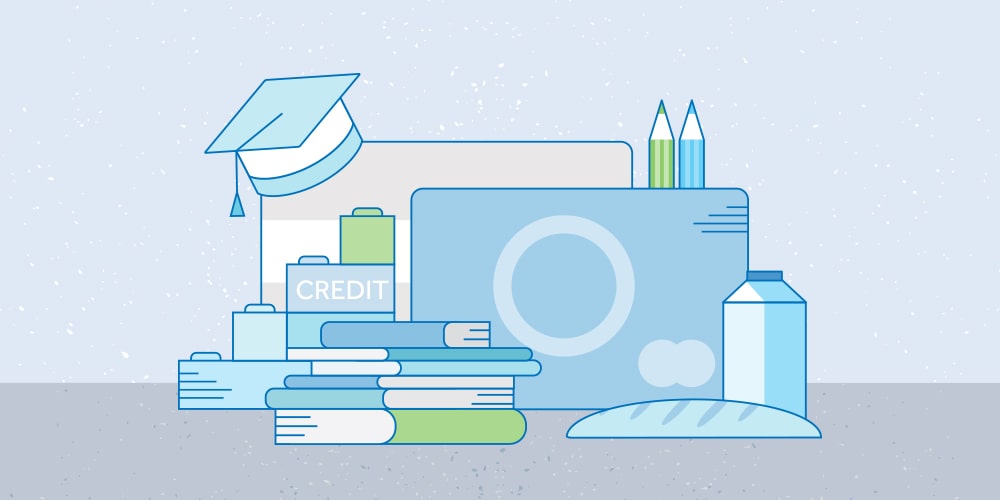Whatever your feelings on adulting are, it's an unavoidable stage of life. Part of growing up and becoming independent is working towards (and achieving) financial independence — which can be both exciting and scary.
One of the more adult-ier aspects of managing money is credit cards. Whether you've had some experience being a joint card holder on your parents' account, or the concept seems as daunting as dialing a rotary phone, there are benefits to going it on your own and getting your first credit card.
We're here to share how (when used responsibly) they can be a useful tool in building your successful financial future. When you're thinking about your first credit card, here's what you should consider.
Lean into the benefits like…
Building your credit. Everyone has to start somewhere and establishing a credit history is important in shaping many of your future money decisions and opportunities. Creating and maintaining good habits like paying your bills on time, and not over-spending, will help you build a healthy credit score.
That score is what will influence a financial institution's decision to lend you money for life's bigger purchases like a new car or your first home, so it's great to start early so you have a solid credit history built when those moments come.
Tracking your spending. If you've never paid close attention to where you spend your money (maybe if you're more used to cash), a credit card makes it easy to see your habits because each transaction shows up on your account statement. This can be helpful when starting to build and stick to a consistent budget.
Earning rewards. It's all about those perks, amirite? If you're spending anyway, you may as well be getting something in return (unlike with most debit cards). Nearly every credit card offers some type of incentive and so it's about choosing what best suits your life and/or your goals.
Having an emergency back-up. Sometimes life hits us with the unexpected. It could be a big unplanned expense that pops up, or maybe a travel situation when other payment methods aren't convenient or accepted. Having access to funds on a credit card is helpful in a pinch.
Avoid the pitfalls of…
Racking up debt. Hearing credit card debt horror stories might have made you nervous about getting a credit card, but they shouldn't (not necessarily anyway). Using a credit card is the best way to build that credit history we were talking about above. Instead, treat them as a cautionary tale and refer to our tips below to steer clear of accumulating unnecessary debt.
Misunderstanding interest. Taking the time to make sure you understand exactly how credit card companies calculate the interest they charge you on purchases you make is important. You won't just be charged a flat percentage if you carry a balance forward past the 21 day interest-free grace period for new purchases, interest compounds (interest gets charged on top of interest) daily, which is why it's best to make your monthly payments in full.
Tips for (successfully) managing your first credit card
- Get a student card. Credit cards specifically designed for students (like Servus's No Fee Mastercard®) are perfect when you're just starting out. Check out and compare the rewards they offer. Some programs (like Servus Circle Rewards®) give you cash-back or the option to redeem for merchandise (great when you're on a budget!).
- Set a low limit. Start out with a manageable credit limit, for example $1000. It'll be high enough for nearly any emergency that could pop up, while still low enough so you don't get out of control with your spending.
- Use it intentionally. Only use your credit card for purchases that you've planned and budgeted for (textbooks, groceries, monthly cell phone bill, etc.). Don't use it for impulse buying because you could easily lose track of how much you spend.
- Pay it (all) off every month. When your bill comes in the mail, make note of the due date and the total balance owing. Then be sure to pay the whole balance on time so as not to pay extra money in interest or late fees.
If you're ready to take the next step towards financial independence, compare Servus's Mastercard credit cards to see which one suits your needs and contact us to apply.
And if you want to learn more about all things credit, check out Credit 101 to become a certified (unofficially) credit ninja!


